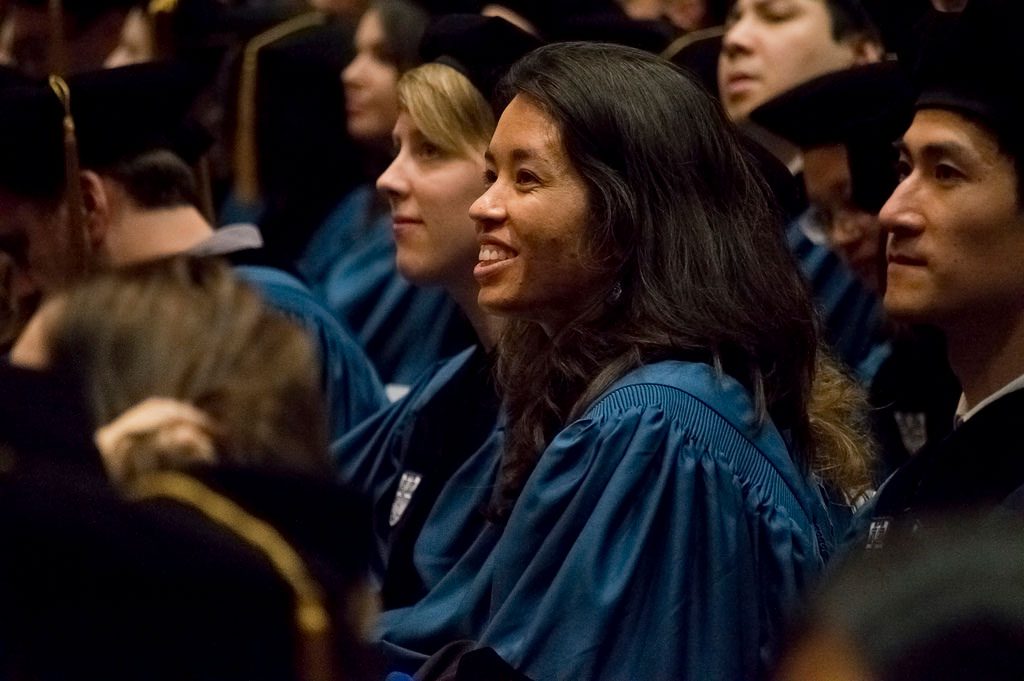By Maria LaMonaca Wisdom
Director of Graduate Student Advising and Engagement in the Humanities
What do graduate students in the humanities need?
As we prepared to launch the VH@Duke initiative this week, one of my colleagues in The Graduate School posed this simple question. The more I thought about it, the more complex it seemed.
 Like a good scholar in the humanities, I kept thinking about this question, and my impulse was to respond by, well, generating more questions. It was a good week to be thinking about these topics, as the ongoing national conversation on the future of the humanities Ph.D. was especially active this week. Both the Modern Language Association and the American Historical Association met for their annual conventions this past weekend; both Connected Academics (MLA) and Career Diversity for Historians (AHA) sponsored panels and events on training Ph.D.s for a variety of career paths.
Like a good scholar in the humanities, I kept thinking about this question, and my impulse was to respond by, well, generating more questions. It was a good week to be thinking about these topics, as the ongoing national conversation on the future of the humanities Ph.D. was especially active this week. Both the Modern Language Association and the American Historical Association met for their annual conventions this past weekend; both Connected Academics (MLA) and Career Diversity for Historians (AHA) sponsored panels and events on training Ph.D.s for a variety of career paths.
I did not attend either conference, and was especially sad to miss the conversations in my own field at MLA. But there was so much conversation! Soon my Twitter feed was chirping away with astute points and takeaways from various conference sessions. It was fantastic, but (thanks to the nature of Twitter feeds) overwhelming. (See Elaine Aaron’s The Highly Sensitive Person, which makes those of us bookish types who are easily overwhelmed sound refreshingly normal).
So … what do graduate students in the humanities need? Our VH@Duke offerings are still emerging (and I have a lot of great suggestions from Twitter to digest now), but whatever we do for graduate students is motivated by the recognition of some underlying needs. They are needs shared by everyone now focusing on professional training and entering an uncertain job market, but I suspect that humanities Ph.D.s, regardless of program or university, may experience them with particular intensity.
- Attention to mindset. Across the academy and across disciplines, most graduate students have been told from Day 1 (by well-meaning professors, family, and friends) that the job market is terrible and that “nobody is hiring.” The resulting fear and pessimism can be contagious in a graduate student cohort, with a devastating snowball effect. As intimidating as the job market can be (in any field, at any professional stage), our goal is to help students enter it courageously and confidently—an attitude bolstered by knowledge of what to expect and how to deal with it.
- Knowledge of situation, and self. One devastating effect of job-market anxiety is that some of the brightest members of our society, in their most productive years, view their horizons as contracting rather than expanding. By helping students inform themselves about all the options available to them, our goal is to ensure that students recognize the full extent of their talents and abilities, and know where and how to apply them.
- Comfort with the unknown. Regardless of profession, no one experience, skill, or dissertation topic is guaranteed to land one a job. I finally realized this late (too late) in my first academic job search, when I found myself obsessing over the minutest details of my interview attire and whether (I cringe to admit this now) search committees would care that I had refrained from using the Oxford Comma in my cover letters. All these preoccupations stemmed from a determination to control an uncertain outcome. Later, in conversations with successful people I regarded as role models, I came to realize that the best career moves are often the unplanned or surprise ones. (More on networking, mentoring, and serendipity in a future post.)
What do you think humanities graduate students need? I’d love to know. Complete our survey about the professional and academic needs of Duke Ph.D. students in the humanities and interpretive social sciences. The survey closes February 7. In the meantime, enjoy the new Versatile Humanists at Duke website, learn about our various offerings, and drop me a line!
